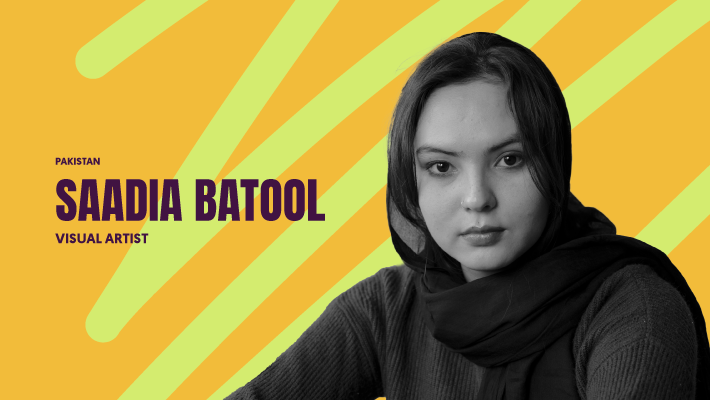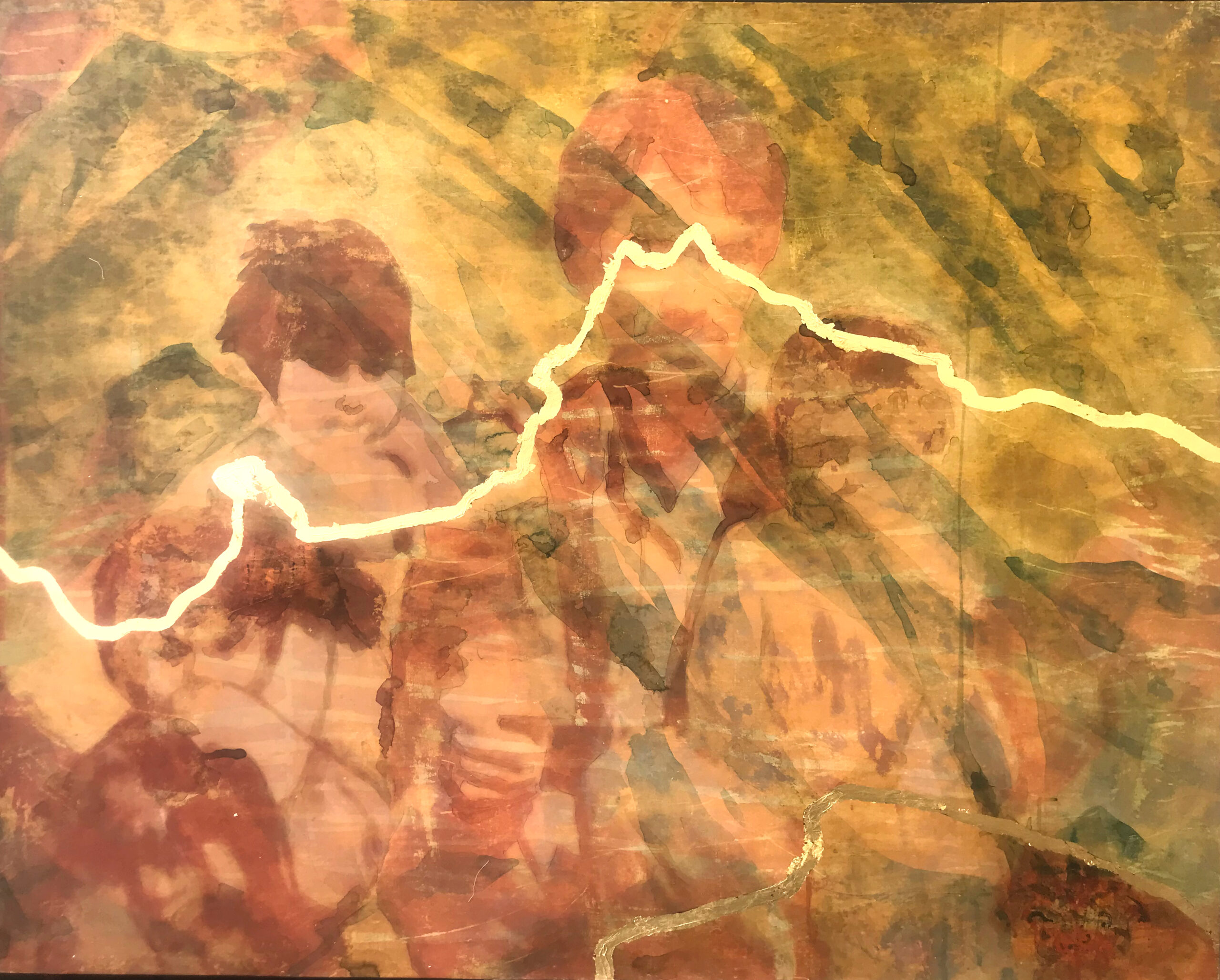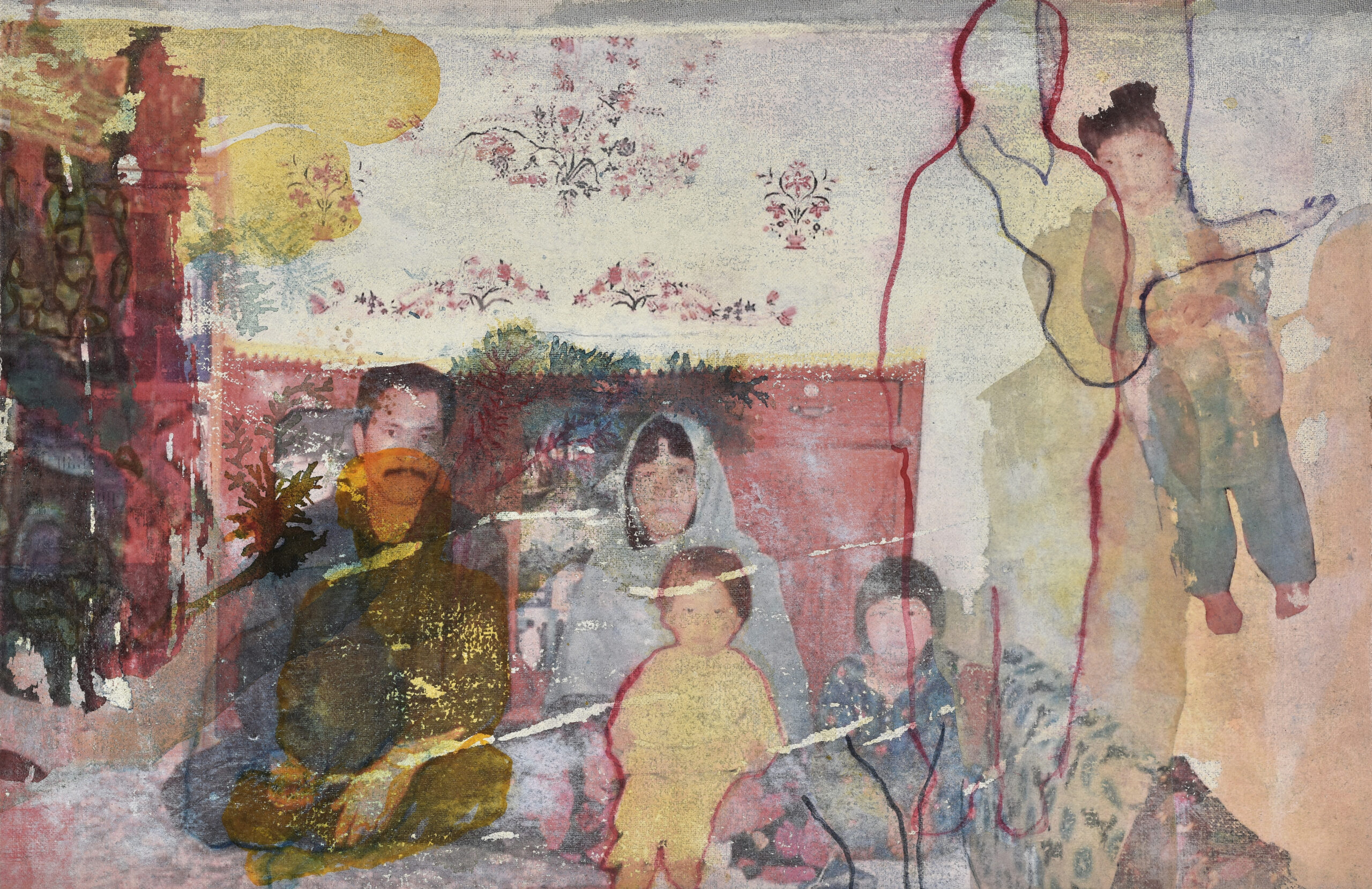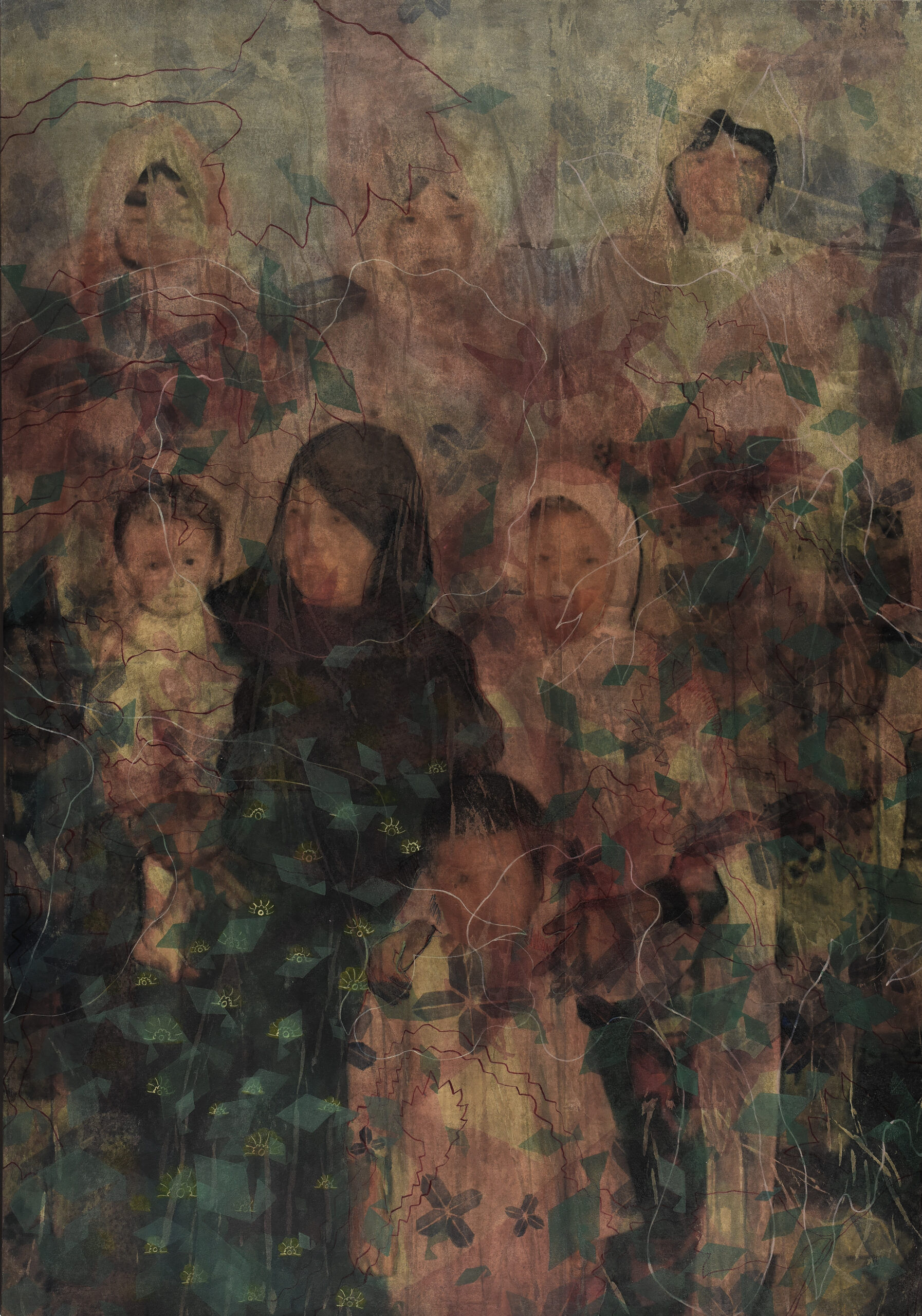Saadia Batool
VISUAL ARTIST
PAKISTAN

Saadia Batool (she/her) is a visual artist from Pakistan. She graduated with a distinction in Fine Arts from the National College of Art Lahore in 2022, majoring in Painting. She has exhibited her work in the Young Artists Exhibition at Alhamra Lahore in 2019 and 2020. She has showcased her work in a group show at Tagheer Art Gallery, Lahore. She was part of a group show “Asli Contemprorary” at Numaish Gah, Lahore. She also was part of a four-person show “Fine China” at Artescape Gallery Islamabad. She exhibited in the show “Broadcast Volume 1” art O Art Space, Lahore. She was part of the show “In the realm of madness” at Gallery Full Circle Karachi. She exhibited in a group show at 8B2 Gallery Islamabad in January. Batool was part of a Inception Grant show 2024 and exhibited at Triveni Kala Sangam New Dehli, India. Follow her extensive work on Instagram.
I often ponder: if not art, then what could serve as humanity's gentle yet potent medium for defence, catalyzing change, protesting, and speaking for social change and activism.Saadia Batool
What role do you think art can play in social change?
Art has tendencies to challenge perspectives, shape public opinions and influence policies. Art can also serve as a form of protest.
How is your artistic practice connected to amplifying social movements?
I remember winter as the season when my relatives would visit us from Afghanistan or Iran, and we would go through the family photographs, reminiscing memories. As I grew up revisiting and recalling past memories of my family through these photographs, I found out that this annual revisiting of memories was a common practice in my neighborhood and community i.e the Hazaras, and I began routing towards my roots as an artist.
My practice amplifies the value and identity of informal archives that are lost in the more formal archival spaces. I have embarked on re-documenting and re-visiting my community Hazara’s archives that are lost and guised merely in the name of family photographs dispersed due to migration and devalued. These very familial archives speak and question rather bigger ideas of time and history, the idea of justice and equality in the world, of segregating borders and lands, hierarchies of culture and religion, identities suppressed and merging into singular whole where each facet retains its own history, lingering to be heard and told. My artistic practice includes unfolding history and archives, bringing awareness and acknowledgment of my community’s cultural history to my people and to the world. I seek to rectify the misinterpretation and obscurity surrounding our identity, piecing together and documenting a part of shattered histories of Hazaras for a more accurate and inclusive narratives. As If I have found a thread and I am playing my part in weaving, unravelling or reweaving a long tapestry of history.
What do you hope to achieve through this award?
Through this award, I aim to cultivate a sense of hope and confidence that my voice will reach a larger and diverse audience, locally and globally. I aspire for the global recognition of the Hazara community’s rich cultural history and art. This award will be helpful in expanding my artistic practice and portfolio, opening more doors such as showcasing my work in galleries, exhibitions, and online platforms, as well as engaging with diverse communities and cultures. This award will allow me to focus on my artistic practice without financial constraints. I hope to experiment with new techniques, themes, and mediums, pushing the boundaries of my creativity and challenging myself as an artist.
Featured work


